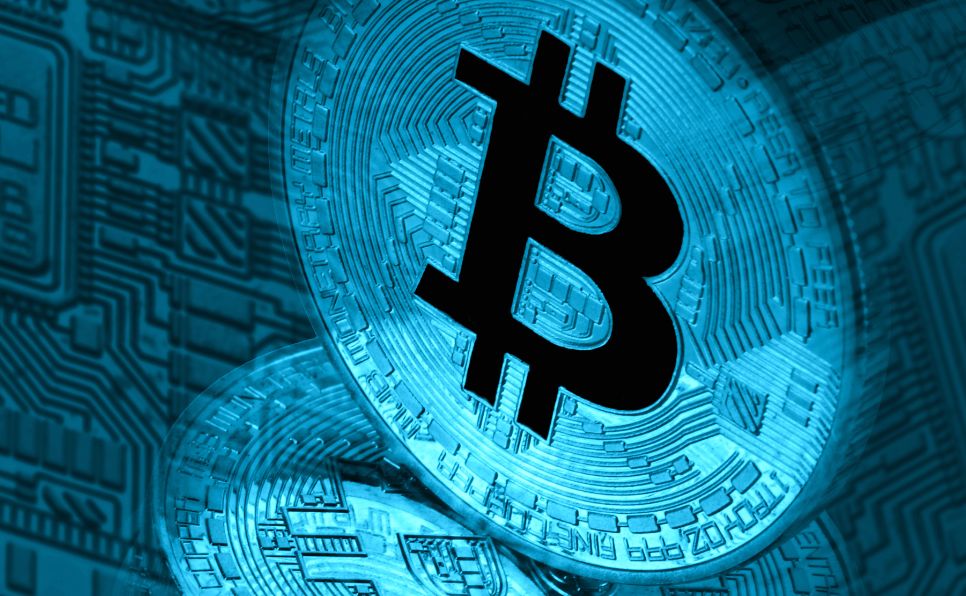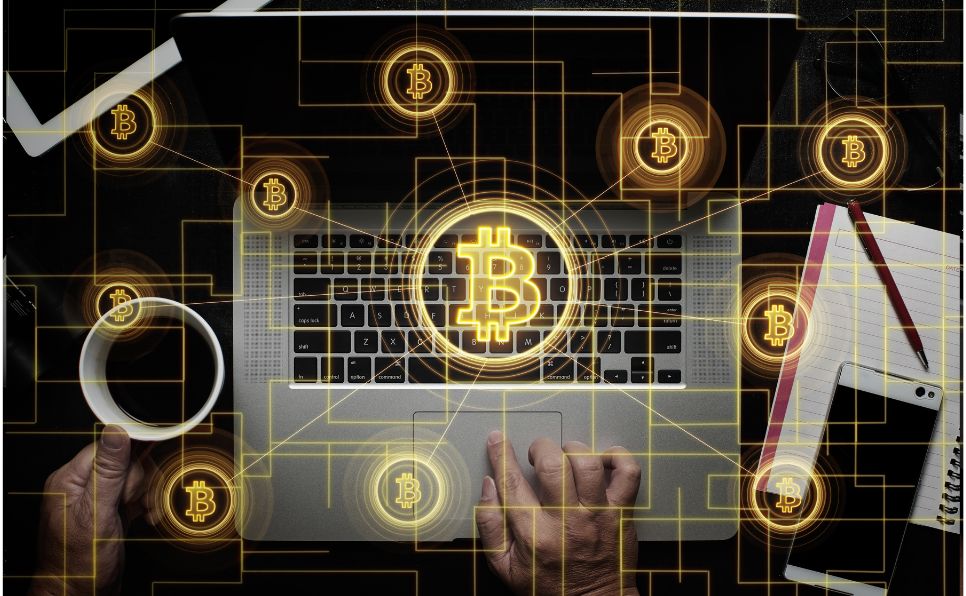When it comes to buying Bitcoin in Los Angeles, there are plenty of misconceptions. While we’ve already addressed this on our blog, more and more Bitcoin myths are appearing as time goes on. Whether you’ve invested in a lot of Bitcoin or you’re just breaking into the market, there’s always a lot to learn about this cryptocurrency.
Why Are There So Many Misperceptions About Bitcoin?
There are several reasons why there are so many myths about bitcoin. Here are some of the main reasons:
- Lack of understanding: One of the primary reasons for the proliferation of myths about bitcoin is a lack of understanding about how the technology works. Many people do not fully grasp the technical details of blockchain, mining, and cryptocurrency, leading to misconceptions and misunderstandings.
- Hype and speculation: Bitcoin has generated a lot of hype and speculation over the years, with some investors and enthusiasts making outlandish claims about the currency’s potential. This hype and speculation have fueled myths and misinformation about bitcoin, leading some people to believe that it is a get-rich-quick scheme or a magical solution to all financial problems.
- Misinformation campaigns: There have been numerous misinformation campaigns over the years aimed at discrediting bitcoin and other cryptocurrencies. Some individuals and organizations have spread false information about bitcoin in an attempt to manipulate public opinion or to protect their own interests.
- Fear and skepticism: Some people are naturally skeptical of new technologies and ideas, and bitcoin is no exception. Fear and skepticism can lead to misunderstandings and myths about bitcoin, as people try to make sense of something that is unfamiliar to them.
- Scams and fraud: Unfortunately, there have been many scams and fraudulent activities associated with bitcoin and other cryptocurrencies. These scams can lead to negative perceptions of the technology and contribute to myths and misconceptions.
The proliferation of myths and misconceptions about bitcoin is a natural consequence of any new and disruptive technology. However, it is important to separate fact from fiction and to seek out reliable sources of information when learning about bitcoin and other cryptocurrencies. By doing so, individuals can make informed decisions about whether to invest in or use these technologies, and can avoid falling prey to myths and misinformation.
Common Myths
- “Physical Bitcoin Tokens are Worth Something”
You may have seen (or maybe you own) golden Bitcoin tokens with a giant “B” on them. But think of them as a souvenir; they’re symbolic and pretty worthless. They come in many forms including plastic. So, if someone tries to pay for something with one of these coins, don’t accept it.
Physical bitcoin tokens are collectible items that have no actual value as bitcoin. They are usually made of metal or plastic and are meant to resemble a physical representation of a bitcoin. They often have a public address and private key printed on them, but they cannot actually be used to send or receive bitcoin on the blockchain.
While physical bitcoin tokens can be fun and interesting items for collectors, investors, or enthusiasts, they have no real value as a form of cryptocurrency. Their value is usually determined by their rarity, design, and historical significance, rather than any intrinsic value as a cryptocurrency.
It is important to note that physical bitcoin tokens should not be confused with physical bitcoin wallets, which are physical devices used to store cryptocurrency. Physical bitcoin wallets are actual storage devices that allow users to securely store their cryptocurrency offline.
- “You Have to Buy a Whole Bitcoin”
They’re actually divisible to eight decimal places, meaning you can get 1/100 millionth of a Bitcoin. In fact, buying an entire Bitcoin wouldn’t be practical for currency use.
Buying 1 whole bitcoin can be a significant investment for many cryptocurrency users, given the current market value of bitcoin. As of February 2023, the price of 1 bitcoin is fluctuating around $20,000 USD. Therefore, it is less common for most cryptocurrency users to buy 1 whole bitcoin in a single purchase.
Instead, many cryptocurrency users tend to buy smaller amounts of bitcoin, such as fractions of a bitcoin or “satoshis,” which are the smallest unit of measurement for bitcoin (1 bitcoin is equal to 100 million satoshis). This allows users to invest in bitcoin with a smaller amount of capital and potentially benefit from the growth of the cryptocurrency market over time.
However, it is worth noting that there are still some cryptocurrency users who are able to invest in 1 whole bitcoin or even more, either due to their personal financial situation or their belief in the long-term potential of bitcoin as an asset class.
Overall, while buying 1 whole bitcoin is less common among most cryptocurrency users, it is still possible for those who are able to invest a significant amount of capital and are interested in holding a large position in bitcoin.
- “Bitcoins Don’t Have Intrinsic Value”
Millions of people believe Bitcoin offers safe, fast and convenient ways to purchase goods. The supply is finite and because people have to own units to use it, it indeed has value.
Bitcoin has a finite supply, with only 21 million bitcoins that will ever be created. This scarcity creates an artificial rarity that can make bitcoin valuable as a store of value or a hedge against inflation. As demand for bitcoin increases, its limited supply can drive up the price, further increasing its perceived value. Bitcoin has value because of market demand. As more people and businesses begin to use and accept bitcoin, its demand and price can increase, creating a positive feedback loop that further increases its value. Bitcoin’s price can be influenced by a variety of factors, such as investor sentiment, news and events, and overall market trends.
It is important to note that bitcoin’s value is highly volatile and can fluctuate widely over short periods of time. This is due in part to its relatively small market size compared to other asset classes, as well as its relatively nascent technology and regulatory environment. However, despite its volatility, bitcoin has gained significant traction as a legitimate asset and investment opportunity, with many investors and institutions incorporating it into their portfolios as a diversification strategy or a potential hedge against inflation and economic instability.
- “Bitcoin Can Be Shut Down”
Because Bitcoin is a cryptocurrency, it’s impossible to shut it down, because that would mean the entire Internet is shut down.
There are several reasons why it is difficult, if not impossible, to shut down bitcoin:
- Decentralization: Bitcoin operates on a decentralized network, meaning that there is no central authority or server controlling the system. Instead, the network is maintained by a global network of nodes and miners who use their computing power to verify transactions and secure the network. This decentralized structure makes it difficult for any single entity, such as a government or a corporation, to shut down the entire network.
- Pseudonymity: Bitcoin transactions are pseudonymous, meaning that they do not reveal the identities of the individuals involved in the transaction. While it is possible to trace bitcoin transactions on the blockchain, it is difficult to associate them with real-world identities.
- Encryption: Bitcoin transactions are encrypted and secured by advanced cryptographic algorithms that make them virtually impossible to hack or manipulate. This level of security makes it difficult for anyone, including governments or other powerful entities, to interfere with or shut down the bitcoin network.
- Global distribution: Bitcoin is used and held by people all over the world, making it difficult for any single government or authority to enforce a blanket ban on the currency. Even if one country were to attempt to shut down bitcoin, it would likely continue to operate in other jurisdictions where it is legal or unregulated.
- Resilience: Bitcoin has faced numerous challenges and attacks over the years, including regulatory crackdowns, hacking attempts, and market crashes. However, the network has proven to be highly resilient and has always bounced back stronger than before. This resilience suggests that even if bitcoin were to face a significant challenge, it would likely find a way to adapt and survive.
Overall, while it is not impossible for bitcoin to be shut down, it is highly unlikely given its decentralized structure, advanced security features, and global distribution. As long as there is demand for bitcoin and a global network of users willing to support it, the currency is likely to continue to operate and evolve, even in the face of regulatory and technological challenges.
If you’re interested in buying Bitcoin in Los Angeles and have further questions about what it can do, RockItCoin can answer your questions. Contact us or visit one of our ATMs today!




